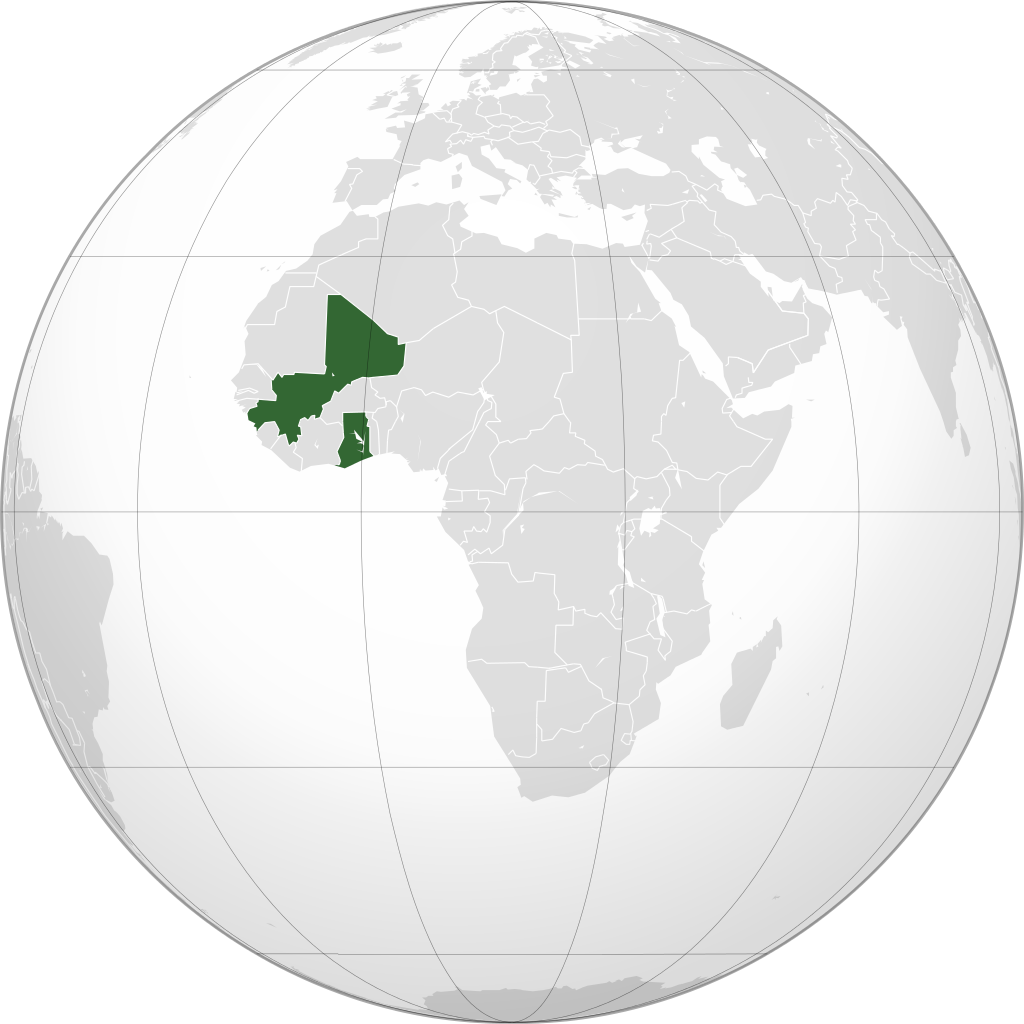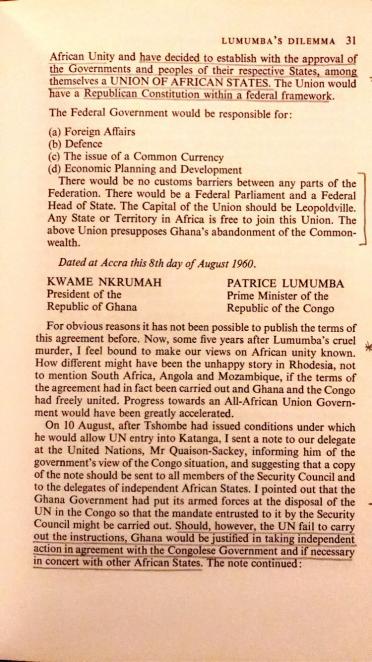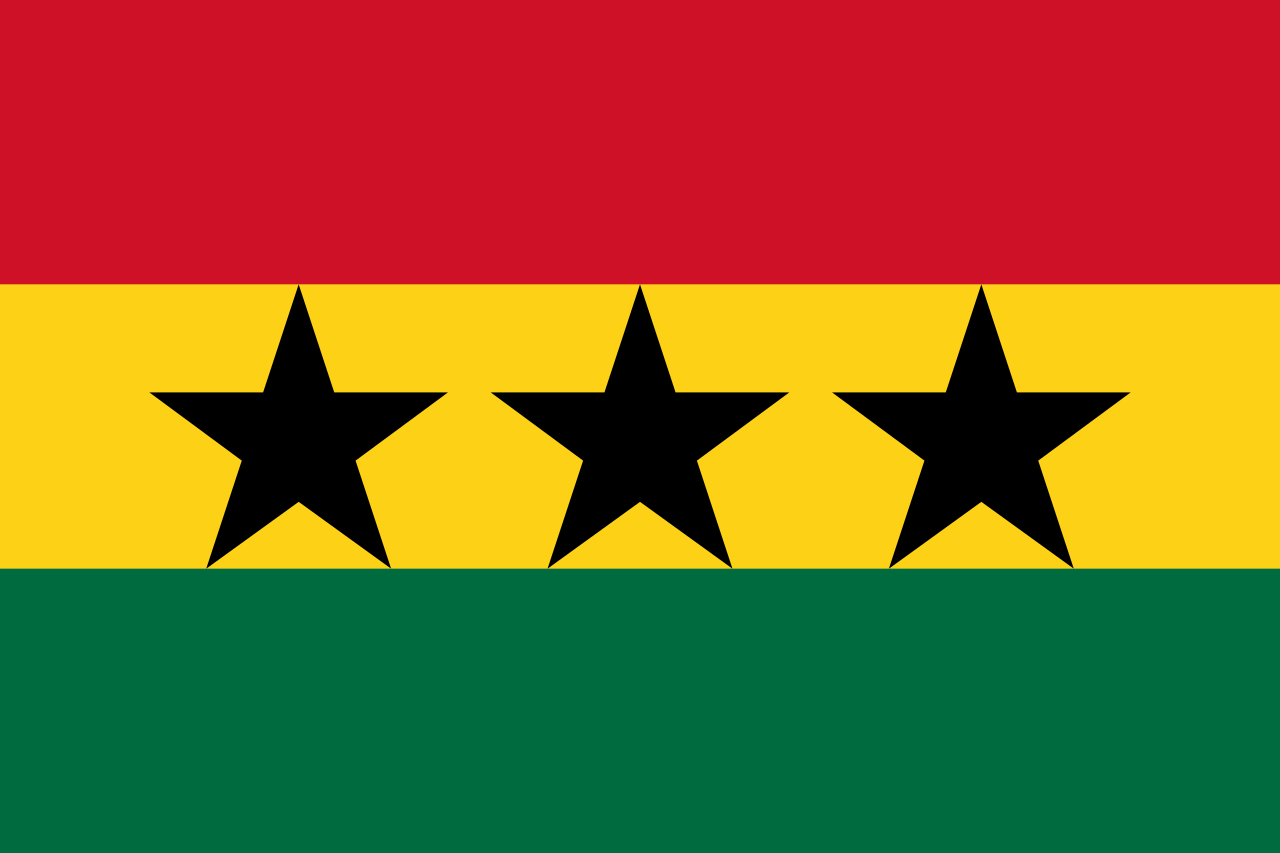More languages
More actions
(Created the page for the Union of African States and gave a summary of its history) Tag: Visual edit |
(Additional background to the union's establishment and included the Bamako conference) Tag: Visual edit |
||
| (3 intermediate revisions by 2 users not shown) | |||
| Line 1: | Line 1: | ||
{{Infobox country|name=Union of African States|image_flag=Flag of the Union of African States (1961–1963).png|capital=Accra (Ghana)<br>Conakry (Guinea)<br>Bamako (Mali)|mode_of_production=Socialism|government_type=Loose Confederacy|image_map=Union of African States orthographic projection.png}} | {{Infobox country|name=Union of African States|image_flag=Flag of the Union of African States (1961–1963).png|capital=Accra (Ghana)<br>Conakry (Guinea)<br>Bamako (Mali)|mode_of_production=Socialism|government_type=Loose Confederacy|image_map=Union of African States orthographic projection.png}} | ||
[[File:Nkrumah - Lumumba Agreement.jpg|thumb|Lumumba's agreement for Congo to join the Union of African States]] | [[File:Nkrumah - Lumumba Agreement.jpg|thumb|Lumumba's agreement for Congo to join the Union of African States]] | ||
The '''Union of African States''', sometimes referred to as the ''' | The '''Union of African States''' (UAS), sometimes referred to as the '''Ghana–Guinea–Mali Union''', was a loose organization established in 1958 between the socialist governments of [[Kwame Nkrumah]] in [[Republic of Ghana|Ghana]] and [[Sékou Touré|Sekou Toure]] in [[Republic of Guinea|Guinea]]. [[Republic of Mali|Mali]] joined in 1961 prior to the union's dissolution two years later. The Union was an attempt at building a continental federation of states based in Kinshasa, [[Democratic Republic of the Congo|Congo]], though this later failed due to the murder of [[Patrice Lumumba|Lumumba]].<ref>Challenge of the Congo by Kwame Nkrumah</ref> | ||
The union came in response to the French reaction to Guinean independence, in which the two governments agreed to build a constitutional union that would include shared economic policies, a desperately needed 10 million pound loan to Guinea, and the merging of some parliamentary institutions. Mali's entry into the union directly led to the Bamako conference of heads of state in 1961, whereas the three heads of state signed the UAS charter which called for a mutual defense agreement and cooperation on diplomatic, economic, research, and cultural matters.<ref>[https://www.jstor.org/stable/2705391?read-now=1&oauth_data=eyJlbWFpbCI6InNpYWthdHVyZTg0QGdtYWlsLmNvbSIsImluc3RpdHV0aW9uSWRzIjpbXX0&seq=4#page_scan_tab_contents African Unification Movements]</ref> Among other developments, such as telecommunication, judicial and transportation agreements, attempts at establishing a common currency were made though this never came into fruition.<ref>[https://books.google.com/books?id=_6eglzXVDcMC&pg=PA122#v=onepage&q&f=false Personal Reflections of a Ghanaian Foreign Service Officer]</ref> After the formation of the Organization of African Unity (OAU), Nkrumah and his government sought Soviet aid in the development of the UAS. This resulted in the dispatching of professor Vladimir Aboltin and Viktor Kulikov to Accra to help Nkrumah plan the development of the union. In which, Soviet researchers helped plan out the stages for an Economic Association of African states, Pan-African Customs union and a Central African Bank as a means of loosening Europe's neocolonial grip on the continent. While reporting back to Moscow, Aboltin would report very critically of Pan-Africanism, declaring it a racist ideology that contradicts with Marxism-Leninism. Despite Brezhnev's declaration of support for Pan-Africanism, USSR would later refuse to send financial aid to build the UAS.<ref>[https://books.google.com/books?id=xI5DEAAAQBAJ&pg=PA66&lpg=PA66&dq=AVP+RF.+F.+(fond,+collection)+0573.+Op.+(opis%E2%80%99,+inventory)+8.+P.+(papka,+folder)+14.+D.+(delo,+file)+7.+L.+(list,+page)+23%E2%80%9324.+Memorandum+by+V.+Ya.+Aboltin+to+the+Central+Committee+of+the+CPSU+%E2%80%9COn+Pan-Africanism,%E2%80%9D+February+26,+1964+(In+Russian).&source=bl&ots=GaYDFBoTth&sig=ACfU3U0Zhp6b_D8IavRkedZevNLi7qSkKQ&hl=en&sa=X&ved=2ahUKEwjs09vpg_H-AhXVF1kFHZQ3CUoQ6AF6BAgHEAM#v=onepage&q=AVP%20RF.%20F.%20(fond%2C%20collection)%200573.%20Op.%20(opis%E2%80%99%2C%20inventory)%208.%20P.%20(papka%2C%20folder)%2014.%20D.%20(delo%2C%20file)%207.%20L.%20(list%2C%20page)%2023%E2%80%9324.%20Memorandum%20by%20V.%20Ya.%20Aboltin%20to%20the%20Central%20Committee%20of%20the%20CPSU%20%E2%80%9COn%20Pan-Africanism%2C%E2%80%9D%20February%2026%2C%201964%20(In%20Russian).&f=false Africa and the Formation of the New System of International Relations]</ref> | |||
== References == | |||
<references /> | |||
[[Category:Countries targeted by imperialist aggression]] | |||
Latest revision as of 22:32, 31 May 2023
| Union of African States | |
|---|---|
|
Flag | |
 | |
| Capital | Accra (Ghana) Conakry (Guinea) Bamako (Mali) |
| Dominant mode of production | Socialism |
| Government | Loose Confederacy |

The Union of African States (UAS), sometimes referred to as the Ghana–Guinea–Mali Union, was a loose organization established in 1958 between the socialist governments of Kwame Nkrumah in Ghana and Sekou Toure in Guinea. Mali joined in 1961 prior to the union's dissolution two years later. The Union was an attempt at building a continental federation of states based in Kinshasa, Congo, though this later failed due to the murder of Lumumba.[1]
The union came in response to the French reaction to Guinean independence, in which the two governments agreed to build a constitutional union that would include shared economic policies, a desperately needed 10 million pound loan to Guinea, and the merging of some parliamentary institutions. Mali's entry into the union directly led to the Bamako conference of heads of state in 1961, whereas the three heads of state signed the UAS charter which called for a mutual defense agreement and cooperation on diplomatic, economic, research, and cultural matters.[2] Among other developments, such as telecommunication, judicial and transportation agreements, attempts at establishing a common currency were made though this never came into fruition.[3] After the formation of the Organization of African Unity (OAU), Nkrumah and his government sought Soviet aid in the development of the UAS. This resulted in the dispatching of professor Vladimir Aboltin and Viktor Kulikov to Accra to help Nkrumah plan the development of the union. In which, Soviet researchers helped plan out the stages for an Economic Association of African states, Pan-African Customs union and a Central African Bank as a means of loosening Europe's neocolonial grip on the continent. While reporting back to Moscow, Aboltin would report very critically of Pan-Africanism, declaring it a racist ideology that contradicts with Marxism-Leninism. Despite Brezhnev's declaration of support for Pan-Africanism, USSR would later refuse to send financial aid to build the UAS.[4]
References[edit | edit source]
- ↑ Challenge of the Congo by Kwame Nkrumah
- ↑ African Unification Movements
- ↑ Personal Reflections of a Ghanaian Foreign Service Officer
- ↑ Africa and the Formation of the New System of International Relations

